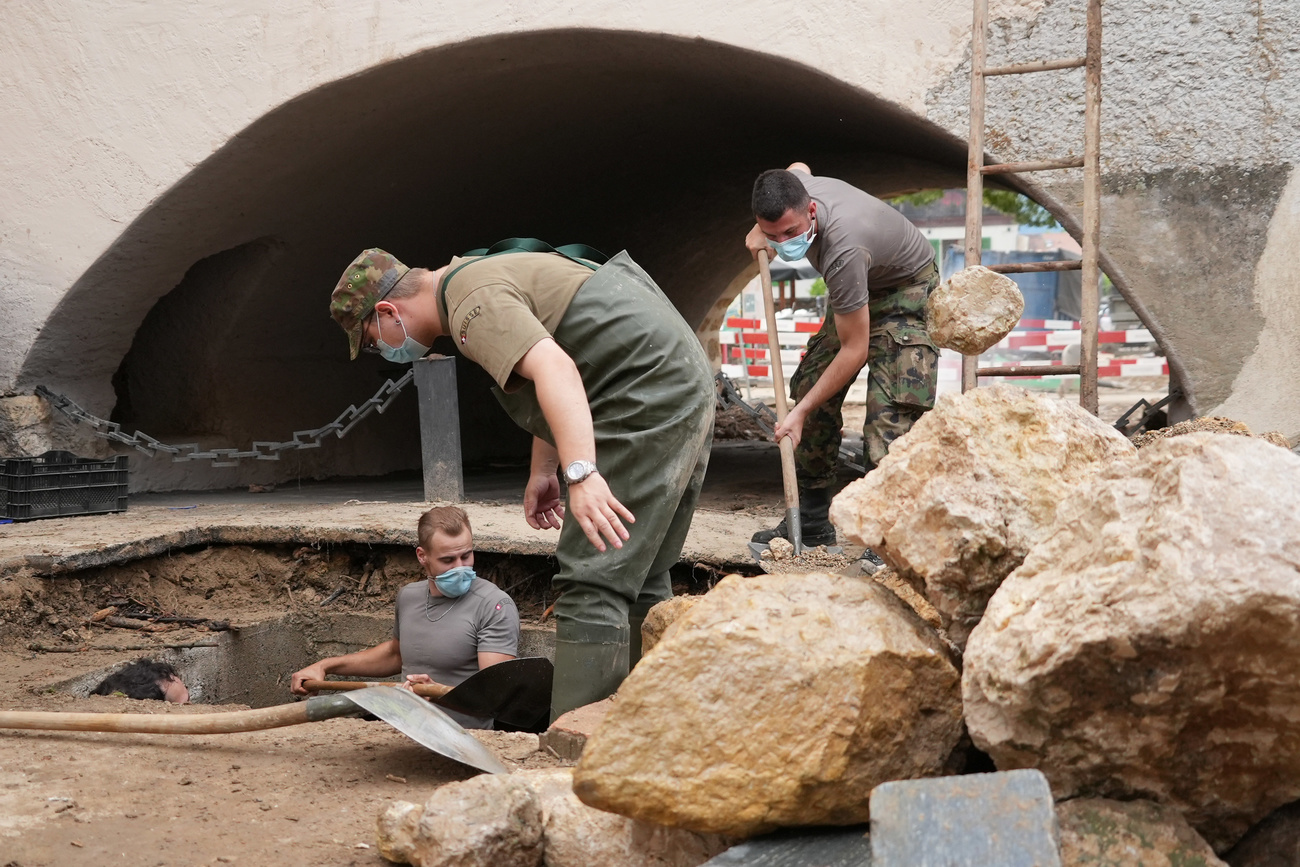
More intense weather events strain rescue teams

Swiss volunteer fire brigades are finding it difficult to cope with the rise in extreme weather events in the country.
On Sunday, news agency Keystone-SDA reported that at least 200 army personnel were being deployed to the village of Cressier in canton Neuchâtel after heavy thunderstorms. Last Tuesday, two streams burst open and flooded the village, damaging 75 houses. According to the army, water, electricity and gas supply networks were also affected.
In addition to cleaning up debris, the army, which was requested by cantonal authorities, is also trying to prepare the village for what meteorologists predict will be another week of heavy rain.
Last week’s storm wreaked havoc on other parts of the country. In canton Zurich, over 1,500 damage reports were received within seven days. Some 10,000 damage reports were filed in canton Bern to the tune of CHF25 million ($27.5 million).
“This week made us think,” Urs Bächtold, Director of the Swiss Fire Brigade Association told the NZZamSonntagExternal link “Such violent thunderstorms across several cantons and for almost a week – this is something new for Switzerland and an exceptional situation for the fire brigades affected.”
Switzerland relies heavily on around 1,000 fire brigades around the country to help in the case of fires, flooding or other emergencies. These are largely made up of volunteers from the community. In contrast, there are only 17 professional fire brigades.
Floods, storms, and hail along with forest and field fires have increased in the last 20 years, according to the association.
“The fire brigades may be the first to feel the effects of climate change,” said Bächtold. “Climate scenarios therefore play an important role in our future prognoses and in the exchange with politicians.”
More frequent and extreme weather events are pushing the brigades to their limits, said Bächtold. This is complicated by the fact that the total number of firefighters have declined in the last decade. There are about 81,000 firefighters registered in Switzerland compared to 100,000 a decade ago.

In compliance with the JTI standards
More: SWI swissinfo.ch certified by the Journalism Trust Initiative






























You can find an overview of ongoing debates with our journalists here . Please join us!
If you want to start a conversation about a topic raised in this article or want to report factual errors, email us at english@swissinfo.ch.